
 Flash News
Flash News
His father was executed this evening in Lezha/ Who was Roan Brahimi, the assassination suspect and rival of Ervis Martinaj?
The first 600 ballots from the diaspora arrive in Albania
Car hits 9-year-old child in Pogradec
Two vehicles collide, 29-year-old dies in Tirana
Large fire in Radhimë, two bars near the beach are involved, a hotel is also at risk
Why the arrival of Meloni's "new" immigrants will ultimately remove Albania from the EU
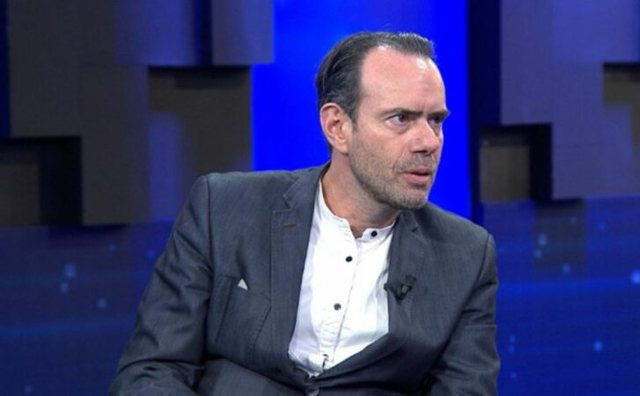
By Genc Burimi
Contrary to the theories of the Albanian government, which believes that by honoring Italy for hosting its immigrants, Albania finds good advocates for its European integration file, this process risks producing the complete opposite.
Under the impetus of Italy and France, the European Commission last month carried out a second revolution in EU legislation on undocumented immigrants. Albania has been selected as the first country for this experiment, which has catastrophic consequences for the country, multiplying by zero its chances of entering the EU in the future. If the EU one day integrates Albania, this will mean for Europe to re-enter its territory the clandestine people it had previously expelled to Albania.
In this article, we will briefly examine the evolution of European legislation that enables what will happen from now on in Albania and, in a second part, we will see how Albania's European integration dossier is compromised.
The evolution of European legislation on illegal immigrants: A relief for Europe, but a trap for Albania
The first European revolution was the establishment of “hot spots” at EU border crossings, such as in Greece, Italy, or Spain. The mission of these hot spots was to serve as “initial” reception centers for asylum seekers, filtering out immigrants who could consider applying for asylum and those who could not enjoy this “privilege” (such as those who had previously made such a request and had it rejected, or immigrants coming from countries considered “safe,” where it was not necessary to be allowed to apply for asylum).
Gjadri in Albania belonged to precisely this category of hot spot: a filtering center for those arriving by sea, to consider whether their asylum claim could be considered by Rome, and then to wait for the asylum application process to be completed. This practice failed, because Italian courts ruled that everyone who came to Albania had the right to seek asylum and, in this case, did not have to stay in a “filtering” center like Gjadri.
However, during this period, another phenomenon was becoming increasingly worrisome for Europe. The main problem for Europe today is no longer who is entering to seek asylum, as asylum applications have fallen across Europe (except in Poland, where Ukrainians are).
The number one problem is how to deal with those who do not receive asylum. It is estimated that there are 8 million of them in Europe today, “un-asylum-eligible” and ineligible. Of the 100% deportation orders issued by European countries, only 15% have been executed.
Në këtë problematikë të re, që Italia e ka pasur prej kohësh dhe nuk gjen zgjidhje, një aleat i papritur i vjen asaj nga Franca. Pas rënies së qeverisë së partisë së Makronit vitin e kaluar, ekstremi i djathtë francez ka vendosur këtë çështje në qendër të programit të saj.
Me premtimin se do të dëbojë 100% të klandestinëve nga vetëm 10% që aktualisht dëbon Franca, ekstremi i djathtë po fiton zgjedhje në Francë. Në këtë kontekst, ministri i ri i Brendshëm i Francës, për të kënaqur opinionin publik, vendosi të imitojë Donald Trump-in dhe të dërgojë klandestinët, në këtë rast algjerianë, me avion për në Algjeri.
Por, kur ata mbërritën në aeroportin e Algjerit, autoritetet algjeriane nuk i lejuan të zbritnin, ndonëse ata kishin pasaporta algjeriane. Kështu, Franca u poshtërua, pasi klandestinët u rikthyen dhe nuk ka më mundësi t’i dërgojë në vendin e tyre, që refuzon t’i pranojë. Këtë mundësi e ka vetëm Donald Trump, që kërcënon me taksa doganore dhe madje edhe me ndihmën e ushtrisë ndaj vendeve që nuk i pranojnë klandestinët e tyre.
Në këtë kontekst, ku e gjithë Europa po kërkon të bëjë si Trump me klandestinët, por nuk ka forcën për ta realizuar, Meloni dhe presidentja e Komisionit Europian, Ursula von der Leyen, së bashku me mbështetjen e Francës, janë bërë pionierë të revolucionit të dytë në legjislacionin europian, i cili do të ndryshojë gjithçka në të ardhmen. Plani është që, në vend të dërgimit të klandestinëve në vendet e tyre të origjinës, ata të dërgohen në vende të treta, dhe pastaj këto vende “tranzitore” të gjejnë zgjidhje me vendet e origjinës. Ky plan kërkonte një ndryshim të rëndësishëm legjislativ, dhe kjo ndodhi muajin e kaluar.
Ndryshimet në legjislacionin europian
Me një rregullore të miratuar më 11 mars, Komisioni Europian bëri dy ndryshime legale që hapin rrugën për realizimin e planit italian, që pritet të adoptohet nga e gjithë Europa.
Për herë të parë, hot spot-et që u konceptuan si qendra pritje për të filtruar kush mund të hyjë për azil në BE dhe kush jo, tani mund të shndërrohen në “Qendra Riatdhesimi” për ata që BE-ja kërkon të dëbojë, por që nuk mund t’i dërgojë dot në vendin e tyre.
Ndryshimi i dytë është edhe më i rëndësishëm. Edhe më parë, një klandestin që nuk mund të dëbohej në vendin e tij të origjinës mund të transferohej në një vend të tretë, por vetëm me pëlqimin e tij. Tani, ky term “në baza vullnetarizmi” është hequr, dhe çdo vend i BE-së mund të dëbojë një klandestin drejt një vendi të tretë, edhe pa pëlqimin e tij.
Shqipëria si eksperiment i BE-së
Në këtë kuadër, Shqipëria po bëhet eksperiment i parë për Europën për të dëbuar klandestinët nga rrugët dhe qytetet europiane në mënyrë legale. Nëse kjo funksionon në Shqipëri, Europa do të hapë një dritare shpetimi, duke i dërguar klandestinët në vende të varfra që mund të blihen me para. Shqipëria do të mbushet e para, dhe kur ky proces të realizohet, integrimi i saj në BE do të bëhet i pamundur.
The immigrants who will come to Albania will be clandestine, perhaps even criminals like the Algerians that France wanted to deport, and will stay in Albania for at least 18 months, or until their country of origin accepts them.
By accepting such an agreement with Italy, Edi Rama is definitively compromising Albania's European integration, only if the opposition wins the elections and denounces this agreement with Italy.
Because of these developments, Albania may be put on a visa for European integration. If Albania agrees to become a country that accepts clandestine migrants, this could mean that Europe, or more precisely Italy, will be more interested in Albania as a place to keep clandestine migrants outside the EU's borders than to integrate them within it.
In this way, Edi Rama is putting Albania in a surreal situation. Beyond the fine words about an Albania with a European passport, he is practically condemning the country to never enter the EU.
Latest news



The first 600 ballots from the diaspora arrive in Albania
2025-04-17 19:52:59
Farmers who make BÉ-eee and farmers of the EU!
2025-04-17 19:30:47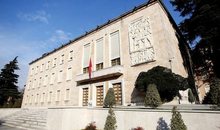

Tobacco: 0% tax for freelancers, PD with a clear plan for the middle class
2025-04-17 19:07:05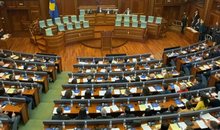

Car hits 9-year-old child in Pogradec
2025-04-17 18:42:15
Alizoti accuses SPAK: It has failed in supervising the elections
2025-04-17 18:31:42
Mental health alert: Work without limits, mind under pressure
2025-04-17 18:09:04
Two vehicles collide, 29-year-old dies in Tirana
2025-04-17 18:01:45
Rama from Dibra: Half of Albanian men are syrians, the rest vote for the DP!
2025-04-17 17:55:58
Top Ukrainian, European and American leaders meet in Paris
2025-04-17 17:45:35

"Metamorphosis", the Court takes time on the way to judge the defendants
2025-04-17 17:24:50

Trump's tariffs could bring Putin closer to peace
2025-04-17 17:06:27
Accident with 3 injured on the Kukes-Krume axis, 27-year-old arrested
2025-04-17 16:41:24
The fires that are burning Albania
2025-04-17 16:36:38

The husband of Rama's former minister in Kosovo is arrested again
2025-04-17 16:14:07
This is the country with the highest road accident death rate in the EU
2025-04-17 16:00:37
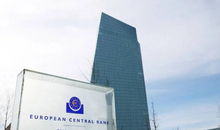
ECB cuts rates to 2.25% amid Trump trade war
2025-04-17 15:38:26

They hit the wife and mother, two arrested in Lezha for domestic violence
2025-04-17 15:13:15

Who is the new Prime Minister of Serbia, Gjuro Macut?
2025-04-17 14:43:03
Court hearing on 'Sterilization' case postponed
2025-04-17 14:40:04
Knife injury in Milot, caused by wrong overtaking
2025-04-17 14:33:42
William Levy released from prison
2025-04-17 14:16:25
Këlliçi: Rama uses sexist and offensive language towards women and girls
2025-04-17 14:05:30

Not a campaign, but a story/ Garo 'takes' ASHM candidates to another level
2025-04-17 13:41:08



Berisha: We are facing the philosophy of extorting businesses and citizens
2025-04-17 13:07:36
Fight breaks out in Tirana, 8 arrested, injured man hit with pistol butt
2025-04-17 12:57:23

Unjust dismissals from the administration, court decisions lingered
2025-04-17 12:29:59

Nuredin Dumani threatens lawyer, "Golden Bullet" hearing interrupted
2025-04-17 12:13:18



With guns and cocaine, thieves flee from police, crashing into officers' car
2025-04-17 11:35:27



Iran says it is ready to address US concerns about its nuclear program
2025-04-17 10:56:49
Navigation of small craft and fishing vessels suspended
2025-04-17 10:45:32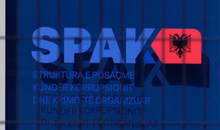
The hearing at the GJKKO for the "5D" file is postponed again
2025-04-17 10:33:43
Zeno's Arrow and Albania in the EU
2025-04-17 10:21:47
Teacher arrested for sexually harassing underage students in Librazhd
2025-04-17 10:07:07

Accusations of collaboration with Rama, Soros rejects comments to "Fox News"
2025-04-17 09:45:32
Foreign exchange/ How much foreign currencies are bought and sold today
2025-04-17 09:42:44
Electoral State/SP accused of misusing institutions for election campaign
2025-04-17 09:30:32

Last year, 20 operators were excluded from the right to win tenders.
2025-04-17 09:09:34
Two vehicles collide at the Tapiza Bridge, one woman dies
2025-04-17 09:01:26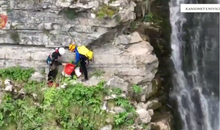
7 tourists rescued after being trapped in Nivica Canyon
2025-04-17 08:41:31
Report: Albania, the only country in the region without industrial policies
2025-04-17 08:32:04
Horoscope, what do the stars have in store for you?
2025-04-17 08:17:21
Temperatures continue to remain high, weather forecast for this Thursday
2025-04-17 08:02:35
Morning Post/ In 2 lines: What mattered yesterday in Albania
2025-04-17 07:49:39

Rama will avoid taking stock at all costs, Berisha has a substantive campaign
2025-04-16 22:35:34

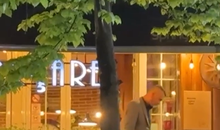
A cartridge at the scene and one injured, details of the shooting in Tirana
2025-04-16 21:34:33
Prices from Lushnja to Tirana, the trader earns more than the producer
2025-04-16 21:31:15


Berisha: Beketi refused to become Rama's slave, you pay 110 million euros now
2025-04-16 20:51:58
Gunfire at the Lake Dam in Tirana
2025-04-16 20:37:22

Accident in Kukës-Krumë, three injured after two cars collide
2025-04-16 20:25:23
Turkey hosts Black Sea security talks
2025-04-16 20:08:45



Mercury enters Aries on April 16: How it affects each zodiac sign
2025-04-16 19:13:37




BIRN: Tirana's "ghost" incinerator affair deflates in court like a soap bubble
2025-04-16 18:24:13


“450 new schools?” - When the electoral calculations don't add up
2025-04-16 17:17:44

Poll/ Which party do you plan to vote for on May 11?
2025-04-16 16:53:24
Doctors sound the alarm: Heart disease is increasingly affecting young people
2025-04-16 16:50:04
Serious in Germany/ Doctor accused of murdering 15 patients
2025-04-16 16:30:27
Knife fight in Kurbin!, three people injure a 30-year-old man
2025-04-16 16:25:36
Car hits Foreign Ministry official on white lines
2025-04-16 16:10:01

